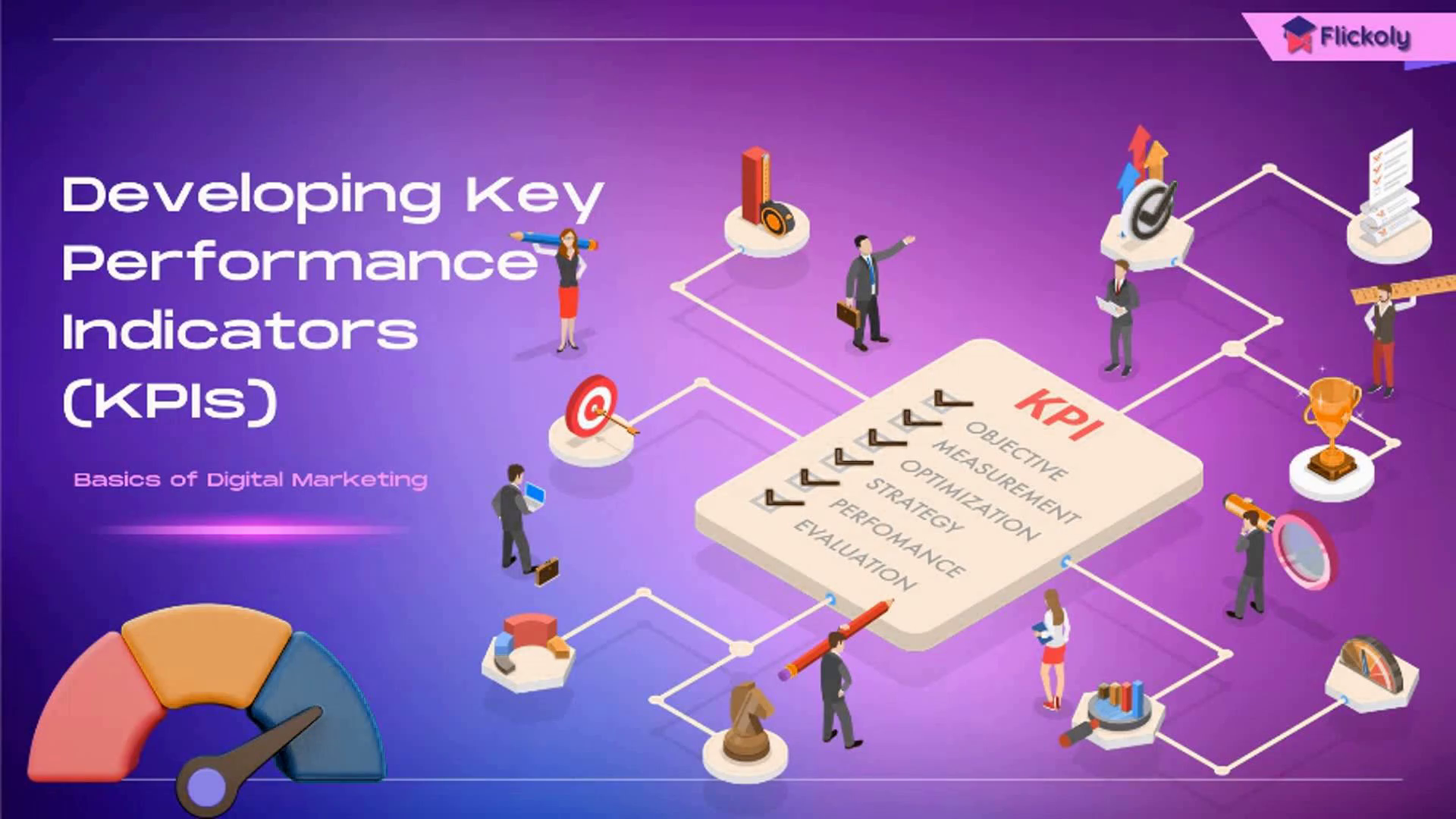
Ch 10-Developing Key Performance Indicators (KPIs)
Scene 1 (0s)
Developing Key Performance Indicators (KPIs) Basics of Digital Marketing.
Scene 2 (19s)
Introduction In the competitive world of digital marketing, success hinges on understanding what works and what doesn't. Key Performance Indicators (KPIs) are your secret weapon, providing quantifiable insights into the effectiveness of your campaigns. This chapter will equip you with the knowledge to develop powerful, data-driven KPIs. We'll explore how to align them with your goals, ensure they meet SMART criteria, track data accurately, and leverage insights for continuous improvement. By mastering KPIs, you'll unlock the potential to optimize your marketing efforts, maximize ROI, and achieve your digital marketing goals with confidence..
Scene 3 (49s)
Understanding the Role of KPIs in Digital Marketing Quantifiable metrics that track the effectiveness of your marketing efforts. Reflect the progress towards your marketing goals and objectives. Provide insights to optimize strategies and make informed decisions..
Scene 4 (1m 17s)
Why are KPIs Important? Measure success Gauge the impact of your campaigns and channels Identify what's working Focus Resources Improve ROI Understand which activities drive conversions and engagement. Allocate your time and budget to the most effective tactics. Make data-driven decisions to maximize returns on your investment..
Scene 5 (1m 51s)
Traffic Metrics Website visits, unique visitors, page views, source of traffic. Types of KPIs in Digital Marketing Conversion Metrics Leads generated, sales, downloads, sign-ups, form submissions. Engagement Metrics Social media interactions, click-through rates, bounce rate, time on site. ROI Metrics Customer acquisition cost (CAC), lifetime value (LTV), return on ad spend (ROAS) Brand Awareness Metrics Social media mentions, brand sentiment, reach, impressions..
Scene 6 (2m 58s)
Start with your overall marketing goals (e.g., brand awareness, lead generation). Choose KPIs that directly measure progress towards those goals. Avoid vanity metrics that don't reflect true impact. Aligning KPIs with Marketing Goals.
Scene 7 (3m 39s)
SMART Criteria for KPI Development Specific: Clearly define the KPI. Measurable: Quantify the KPI to track progress. Achievable: Ensure the KPI is realistic. Relevant: Align the KPI with business objectives. Time-bound: Set a timeframe for achieving the KPI..
Scene 8 (4m 22s)
Tracking and Data Collection Identify Data Sources Google Analytics, social media insights, email marketing platforms, CRM systems Implement Tracking Tools Set up goals, conversions, and events for accurate data capture Regularly Monitor Data Stay updated on performance trends and identify areas for improvement..
Scene 9 (4m 53s)
Benchmarking and Performance Comparison Compare your KPIs to industry benchmarks Track historical performance Focus on improvement.
Scene 10 (5m 25s)
KPIs for Different Digital Marketing Channels Email Marketing: Open rates, click-through rates, conversion rates. Social Media: Engagement metrics, follower growth, reach, impressions. SEO: Organic traffic, keyword rankings, website authority. PPC: Click-through rates, conversion rates, cost per click (CPC)..
Scene 11 (6m 25s)
Analyzing and Interpreting KPI Data Go beyond raw data Identify strengths and weaknesses Uncover insights.
Scene 12 (6m 52s)
Continuous Improvement and Iterative Refinement Use insights to optimize campaigns Refine your KPIs Embrace an iterative approach.
Scene 13 (7m 37s)
Thank You! See You In The Next Session!. undefined.